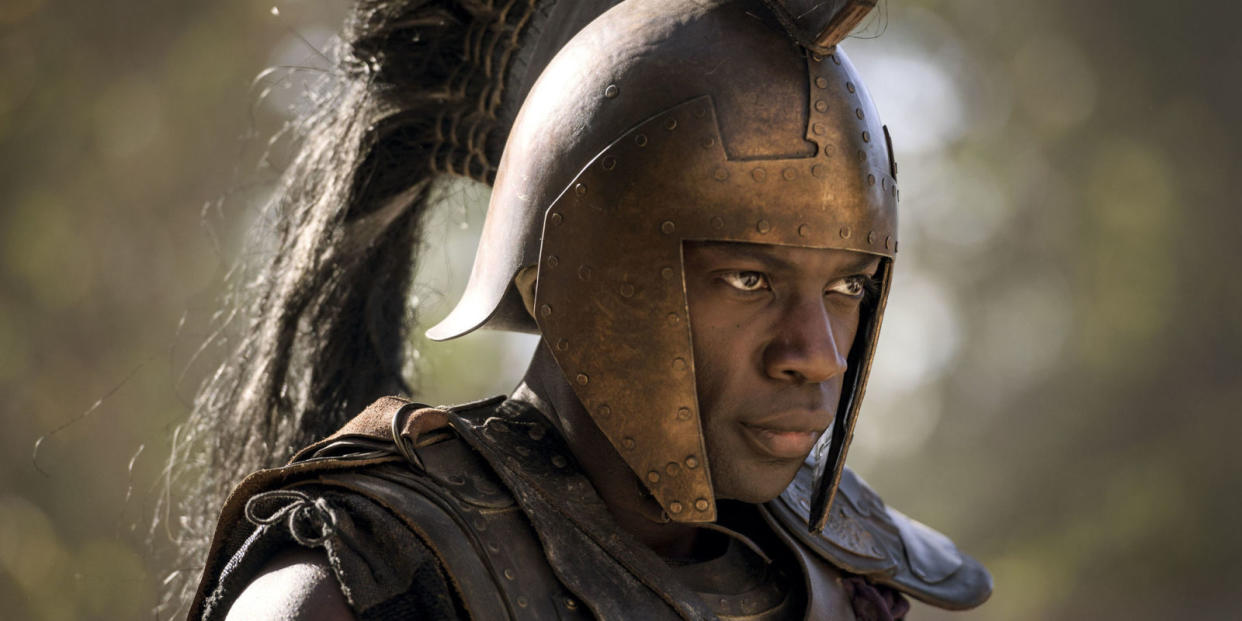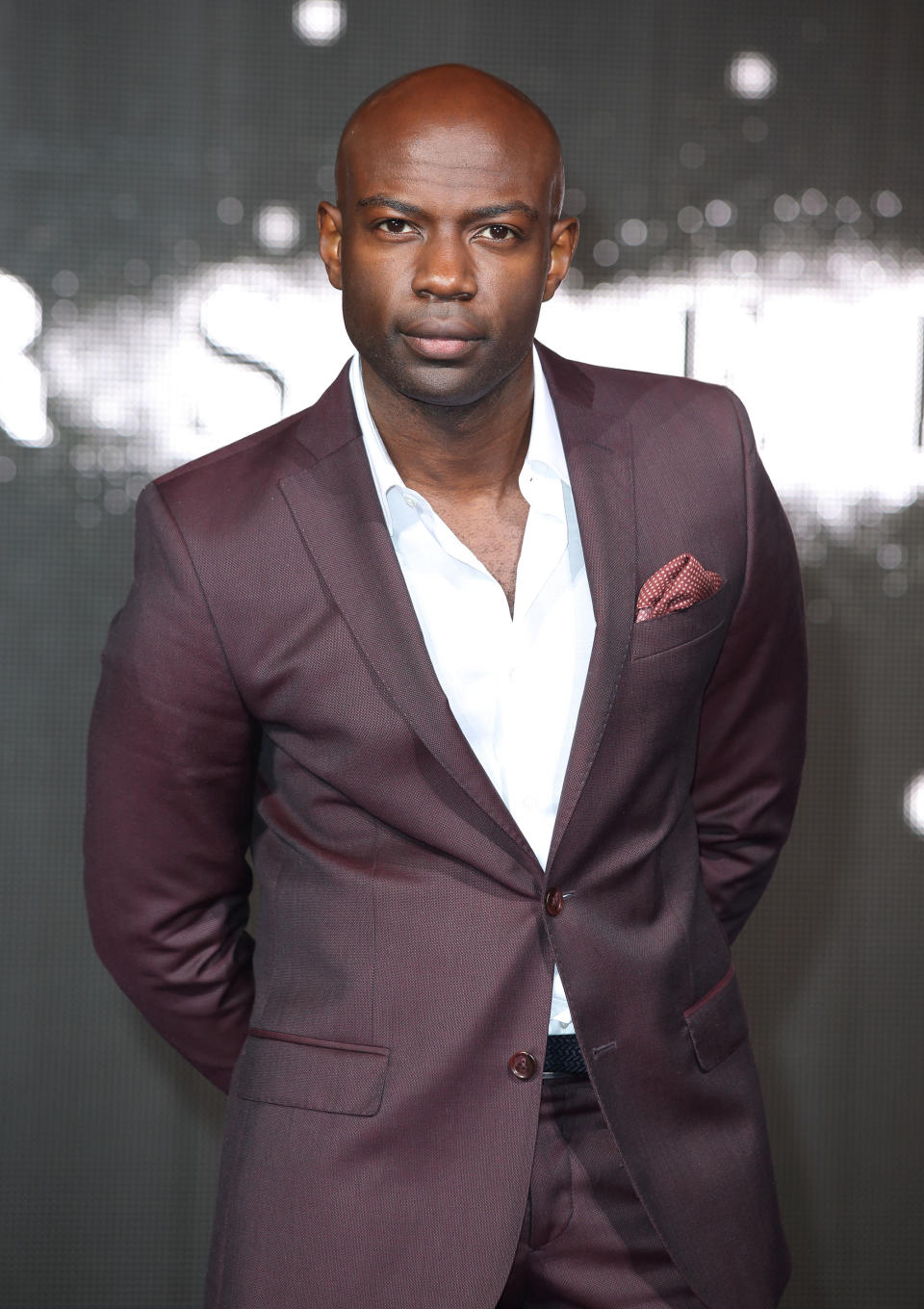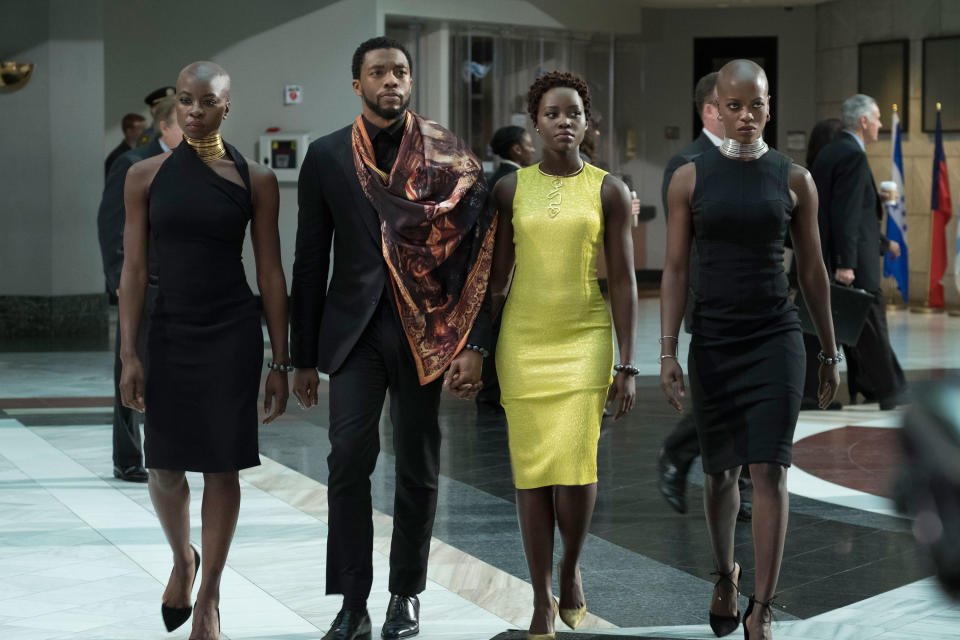Troy's David Gyasi defends being cast as Achilles

He's worked on Christopher Nolan's Interstellar and led the American TV limited series Containment. Now, David Gyasi can be seen in an entirely different role, playing none other than the famed and fearsome Greek warrior Achilles in BBC One's Troy: Fall of a City.
Gyasi has drawn plaudits for his portrayal of the war hero, and yet such is the internet, there has been a disappointing amount of negative reaction to his casting – not because of his acting ability, but because of the colour of his skin.
Achilles is often portrayed as a white man in depictions and adaptations of Homer's Iliad. However, anyone who focuses on Achilles' skin colour is neglecting the "essence" of the story and who the character is, Gyasi tells Digital Spy.

"What I've heard sometimes is, 'Why don't we cast Nelson Mandela or Martin Luther King as a white person?' But when we tell stories, we have to look at the essence," the actor says.
"When I read about The Iliad and read about Achilles, the things that came off the page to me were to do with being a demigod, the physical turmoil, the internal conflict, the pursuit of love and honour and legacy, and all of these things. At no point did I think, 'How am I going to play his blonde hair because that's really important to this story?'"
Gyasi comments that changing the race of Mandela or King is a very different case because doing so would erase what they represent. "One of the saddest things about these great, great men – phenomenal men – is that their wisdom and their intelligence and their brilliance was a lifetime spent trying to get equality," he says.
"Imagine if you had a world where it was already equal. What could those men have gone on to achieve?

[Above: David Oyelowo played Martin Luther King Jr in 2014's Oscar-nominated Selma]
"Imagine Barack Obama went into the office and his skin colour wasn't an issue. How many laws would he have been able to have passed without the sort of reaction he had to face?
"So if you're a storyteller and you wish to subvert this idea of Obama being black, then you need to find a way to ask yourself why you're taking the essence of the story out.
"It would be like playing Achilles and taking his status of being a demigod and the psychological turmoil and all of those things, taking all of that away and putting something else in and then going, 'But he has white skin and blonde hair and that's the most important thing'."

In fact, Gyasi drew from his own life to help get into the mindset of the demigod Achilles. The star grew up in areas where he sometimes was the only black boy in class. Furthermore, as an actor, he often finds himself in rooms with people of authority and decision-makers where he is the only black person there. "It is quite an interesting thing," he comments.
"My dad kind of constantly told me when I was younger, 'You're going to have to work 10 times as hard', and I was like, 'No, dad. I'm not. I play football with these guys! I don't have to work ten times as hard' – and then growing up and going, 'Is that what he means – when I do a part and yet people speak about the colour of my skin rather than the work and the joy and the psychological dramas of it?'
"All of that is useful when you are playing someone who is set apart from the people that are around him. I didn't have to claw for a lot of that from outside of my own personal experience, but rather I borrowed some of that from my personal experience.
"It feels slightly realer to me, you know. You don't have to do much to convey that. You can just keep within that memory and just let that story read."

Representation in Hollywood has always been lacking, but it seems that tide may be turning with recent acclaimed box office hits such as Black Panther and Get Out. Gyasi says that he was stunned by how much the experience of Black Panther, Marvel's groundbreaking superhero blockbuster hit, meant to him.
One part stood out (minor spoilers for anyone who has yet to see it). During the film, T'Challa crosses over to the ancestral plane and speaks with his father T'Chaka. Gyasi explained that the traditional African clothing that T'Chaka wore was particularly meaningful.
"I buried my dad last year. It was so interesting to me being in a cinema and seeing that what his dad was wearing was similar to what I had to wear at my dad's funeral.
"I cannot tell you how that felt to be in a cinema. At 38 years old, to see yourself reflected – that is a thing I can't even explain and never expected how impactful that would be to me."

[Above: Black Panther]
Gyasi saw Black Panther a second time, this time accompanied by his 10-year-old son and his wife. And that same moment caught his son's attention. "My son was like, 'Dad, we wore something like that!' And he's 10. And he's already seeing himself reflected at 10," the star says.
"Remember what I said about, 'If these brilliant men operating in a world where equality already existed, what could they have gone on and achieved with science, with medical advancements, with political advancements, with world peace, with hunger, with poverty, with all of these things – if their focus wasn't just about race'.
"And I'm sat there thinking, maybe my son when he's choosing his career, when he's shaping his career, maybe I won't have to say to him, 'You have to work ten times harder, son. Maybe you just focus on your work'."
Gyasi states that the potential of a world where people are not discriminated against by the colour of their skin is "truly exciting", and that representation on screen and on stage will hopefully play a significant part in achieving that. "We're starting to move towards character over appearance nearly, and that's really exciting," he says.
"To be able to hand a world like that down to my children and the next generation after that, that blows my mind."
Troy: Fall of the City airs on BBC One.
Want up-to-the-minute entertainment news and features? Just hit 'Like' on our Digital Spy Facebook page and 'Follow' on our @digitalspy Twitter account and you're all set.
You Might Also Like

 Yahoo News
Yahoo News 
